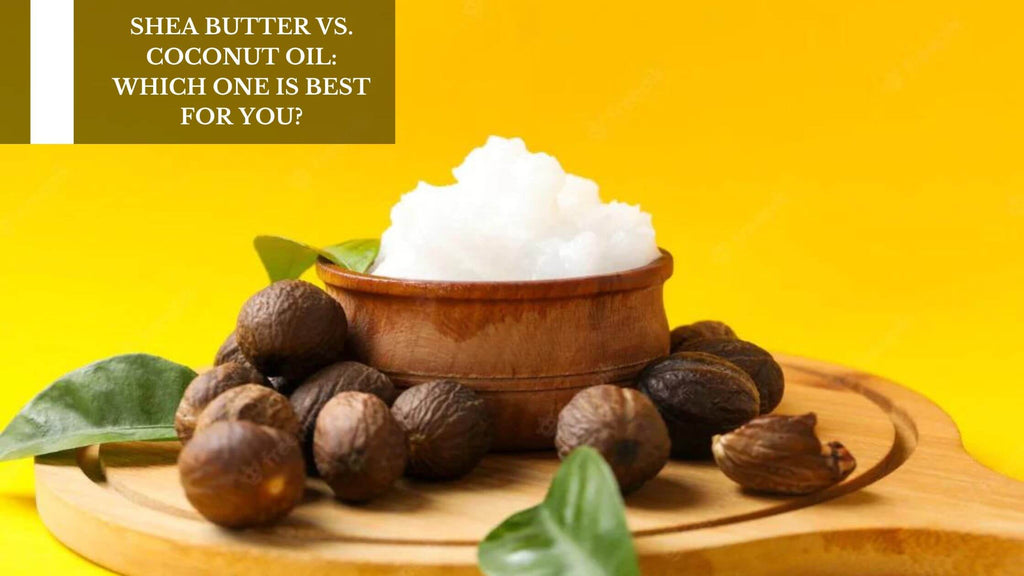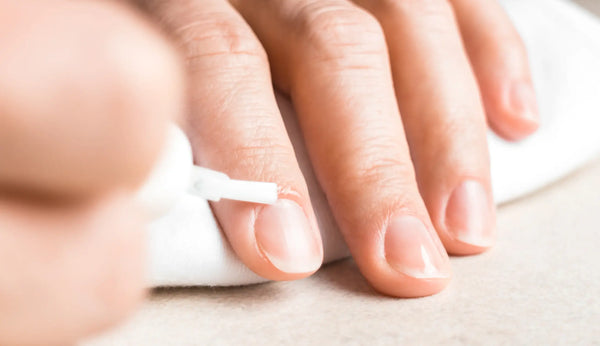Shea Butter vs. Coconut Oil: Which One Is Best For You?

Shea butter is a butter made from the seeds of the African shea tree. Shea Butter is a natural emollient that can be applied to the skin and hair. It can help reduce dry, itchy skin or scalp and rid your hair of dandruff. It also has antibacterial properties and can be used to make soap. Shea Butter is incredibly moisturizing so many people like to use it when they have dry, rough, cracked skin on their knees or heels. Coconut Oil is a vegetable-based oil extracted from the meat of mature coconuts harvested from the coconut palm. Pure coconut oil has a very soft texture and does not feel greasy when applied to the skin, unlike some other oils such as olive or grapeseed. It is very fragrant and has anti-aging properties, which makes it a favorite among older women. It can be used as a hair moisturizer and to treat dandruff and even hair loss.
You may also like:
Coconut oil also helps keep skin smooth, clear, and youthful. Shea Butter is produced in Ghana and is an unrefined, natural butter that is light and smooth. The sweetest shea butter (and also the most expensive) comes from the seeds of African shea trees known for their much-prized buttery yields. The nuts are harvested and then chopped, pressed, and cooked to make a sticky liquid called "butter". This liquidized butter is then mixed with water or milk to re-solidify into a hard block of unsweetened, refined peanut butter. Some people also add salt to Shea Butter while processing it into a food product.
Health benefits of using shea butter vs coconut oil:
1) Shea butter hair care
Shea butter has been known to nourish your hair and scalp. It is an excellent moisturizer that helps your hair grow faster, strengthens the hair, and can make red spots on your scalp disappear. The antibacterial properties of shea butter will help keep dandruff at bay. Shea Butter can also be used as a natural facial moisturizer to keep your skin hydrated and healthy – but it's not recommended if you have extremely sensitive skin.
Coconut oil hair care: Coconut oil is very similar to shea butter. It is a moisturizing oil that can be used to repair damaged hair and prevent split ends. Coconut oil also keeps your hair shiny and soft. If you have damaged or brittle hair, squeeze the excess coconut oil out of the bottle and use it as an all-over moisturizer for the face and body, too! Many beauty experts use it in place of a conditioner to keep hair healthy, strong, and moist. Coconut oil can also be used as a treatment for dandruff or scalp itchiness and flaking.
2) Shea butter skincare
Shea butter is one of the best natural skin moisturizers out there. It nourishes dry, damaged, and aging skin, leaving it looking and feeling healthy. You can use it as a natural facial moisturizer or body lotion to keep your skin hydrated.
Coconut oil for skin: Coconut oil is also great for your skin, thanks to its high content of vitamins E and K. It hydrates the skin and makes it smoother, firmer, and healthier. The lauric acid in coconut oil acts as an antibacterial agent, which means that you can use a little bit on acne spots to prevent scarring.
3) Shea butter for dark spots and pigmentation
Dark spots on the skin can be caused by several different things, including age and stress. Thankfully, shea butter will help reduce the appearance of discolorations and dark spots. It works as a natural blemish-treatment cream as it helps reduce scarring by moisturizing damaged skin! Shea butter can also be used to treat dry and irritated skin and to prevent scars from forming.
Coconut oil for dark spots: Coconut oil works just as well for dark spots or pigmentation. It is very powerful in moisturizing your skin and helping remove any dry patches on your face or body.
4) Shea butter and coconut oil for nail care

Nail care is an important part of any beauty routine, and your nails need special attention if your skin is dry. Shea butter is a great treatment for dry, flaky nails that peel or crack easily. It helps clean out dirt and dead skin while creating a protective layer on the nail plate to prevent future breakages.
Coconut oil also works well for your nails: Rub some coconut oil into your cuticles daily to make them less dry and brittle. Both shea butter and coconut oil contain lauric acid, which protects the nail plate from cracking and keeps it soft and smooth.
5) Shea butter for eczema
Eczema can be a frustrating skin condition, as it can cause eczema skin to be very dry and itchy. Shea butter can help remove the itchiness caused by eczema. It is also a natural astringent that helps balance oil levels on your skin, making the eczema less irritated.
Coconut oil for eczema: Coconut oil works well as an eczema treatment because it is so moisturizing and soothing. The lauric acid contained in coconut oil acts as an antibacterial that helps prevent eczema flare-ups from occurring.
6) Shea butter for stretch marks
Stretch marks are a common problem during pregnancy, and they are unsightly and uncomfortable. Shea butter is often used to treat these unsightly stretch marks and can be used as a moisturizer or night cream to help restore smooth skin.
Coconut oil for stretch marks: Coconut oil is also a great choice for treating stretch marks, as it is so moisturizing!
You may also like:
FAQs:
1) How do I use coconut oil on my hair?
Coconut oil can be used to deep condition your hair. You can also use it as a hair mask to give your strands extra shine and volume. Just rub a bit of coconut oil into damp or dry hair, and leave it on for 20 minutes before rinsing out. If you want to avoid the oily feeling that you get from leaving unprocessed coconut oil in your hair, you can try our Virgin Coconut Hair Oil, which has been steam-distilled at low temperature to maintain all of the natural properties of the coconut oil without the excess weight and grease.
2) How do I use shea butter on my hair?
Shea butter can be used as a deep conditioning treatment for your hair, or as a heat protectant when styling. The natural moisturizing properties of the shea butter help strengthen and nourish your hair while making it smooth and shiny. Shea butter can also make dry, damaged, or thinning hair look thicker and more voluminous.


Leave a comment